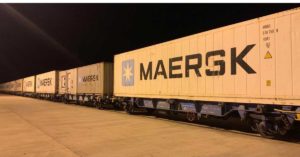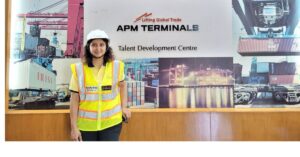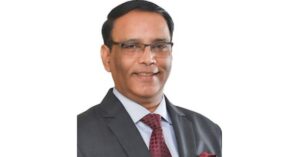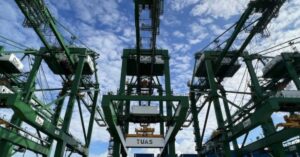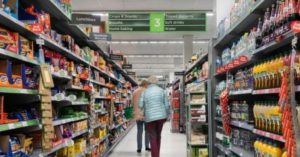“Multimodal infrastructure should be made seamless, only then will it reduce transit time, reduce wastage, bring in tremendous efficiency and bring down the cost and since each mode will be competing with each other, we will be able to avoid monopolies,” shares Shantanu Bhadkamkar, Chairman, ATC Global Logistics Pvt Ltd.
Which are the key global trends that are affecting the freight forwarding or rather transforming the freight forwarding business and how do you think the Indian freight forwarding community or their competencies are matching with the changing scenario?
Freight forwarding is an ever-transforming industry and since I joined in 1981, the change it has undergone is so much that it is almost unrecognizable. What I did when I joined and what I do today has actually no common thread except shipping lines and truckers as vendors are the same and our customers are same; but for that the structure and the business models have changed completely. The changes in freight forwarding predate Covid. Covid may have accelerated certain trends, but the changes predate it. The basic triggers for transformation started in 1991 with globalisation. That is when the industry exploded because it is not just India globalized in 1991, the rest of the world had started globalisation a decade earlier. So, we all could ride the wave of growth. It is said that the decade of the 70s was a Western decade and it was low growth all economies, but 80s the people started transforming; 90s, India transformed, and that’s where really the freight forwarding started transforming in terms of every freight forwarder in local started becoming multi-local, regional, national, and global. You will not find any global freight forwarder earlier than that. But what happened is for last, maybe 15 years, the industry as such has not transformed itself. Some players in the industry have transformed and become a contract logistics player which is different ballgame. I have seen some websites claiming people as contract logistics but they are not doing contract logistics. Second transformation we see is because of digitisation. Digitisation has democratised information; it has facilitated processes and eventually it will lead to disintermediation. And disintermediation in freight forwarding has been happening for a long time. You can example of a freight broker. If I go back to 80s, every single consignment was booked through a freight broker. Today, you will find hardly any consignment is booked through a freight broker. So, freight forwarder, custom broker have to make note of this. Similarly, we have seen steamer agent. Every location had a steamer agent. Now, shipping lines have their own office, and they are not just representative office, they are operational offices. They do all the operations in that particular city or in that particular country by forming a company. So, all these structural changes have brought the shipping lines closer to the customer. If that was not enough, today ports, terminals, and shipping lines are doing freight forwarding, they are doing trucking, they are running railways, they are operating ports, they have big digital platforms. One of the big terminals or a port company has 250 analysts in Delhi for big data analytics. So, you can imagine the kind of changes the industry is going through.
This essentially means there is a lot of pressure on freight forwarding because of the operators getting into end-to-end services. Traditionally most of the freight forwardings are family-run businesses. They have been there for many years and you also have been talking on several forums that community has to change, adapt to change, they should get onto the new technologies, their service offerings should be more. So, how is it adopting and do you see that the companies are able to adopt?
Let us see three dimensions of this question. Number one is the family ownership. Port and terminal are not family owned; they are mostly government or diversified ownership but if you take 4 top shipping lines, 3 are family owned. So, family ownership has not restrained people from growing, and these are shipping lines which are doing now terminal operations, they are freight forwarder, railway operator. So, family ownership, I don’t think is a barrier. Coming to changes that we are talking about how the business has changed, I have to go back to first industrial revolution and where railways replaced horse carriage. Now, if I was depending on a horse carriage, I can’t complain that railways are faster, quicker, more schedule time arrivals, schedule time departure, costs less, can carry more cargo at one time safely. So, if it brings all the advantages, one has to transform the business or discard the business and move into other. Third point is freight forwarders are survivors. If we take Darwin’s theory of evolution, we have been ever evolvingand that’s why we are survivors. So, we are one of the earliest assimilators of technology. If I look at customers and if I look forward also, freight forwarders adopt technology very quickly which is a less spoken, less known fact but owning a technology and adopting a technology are two different things. People mistake that we create our own platforms or we create our own software for technology assimilation. What we do is use the available technologies of our vendors, of our customers; we build a bridge and we start getting assimilated into their technology and use that technology. So, freight forwarders have been assimilating. What freight forwarders have not been able to overcome is as people became multi-local, we became even more fragmented. Because of container and liberalisation in customs, the specialisation as a concept is a thing of past. Today, everything is commoditised, un-differentiated and we are a fragmented industry. So, those premiums we used to get are gone and people have to work on wafer thin margins or nil margins. So, that we have not been overcome for last 10 years by differentiating ourselves, but if you see what some freight forwarders have done can be role model for others. Now, if we take the segment — Indian subcontinent, Southeast Asia, going up to to near Far East and Middle East, the cargo is controlled by what is called, NVOCC or box operator. It is Indian freight forwarders who have purchased containers and they have slot chartering agreement on the common carriers and these are the carriers which the so-called big shipping lines also use.
Now, you will be surprised and it is very less spoken that it is these NVOCCs and box operators who operate throughout these 3 regions and except for Colombo, they have the nominal market share. So, some of them have overcome, some of them have become contract logistics. I wouldn’t say digital freight forwarders have still grown that they can be a role model or they have become a big threat but we don’t know …the world changes very rapidly and maybe digital freight forwarders will transform the picture and we all will be only digital freight forwarders and that is happening because of the digitization of the economy. I am not talking about the digitization of technology. Now, we have digitization of economy. It’s happening because of that and India is the biggest assimilation of digital economy where even the smallest person in village now has the UPI payment facility. So, we are very strongly into that arena already.
Few years ago, we were discussing about a lot of challenges like infrastructural or regulatory, not having transparency or not having self-governance, which have been negatively impacting our businesses or our service to customers. So, what has changed in the recent years and what needs to change going forward?
I would say infrastructure has increased for sure. If we travel to Northeast, you find airports are excellent and we had hinterland travelled in Northeast and the roads are excellent and it is very creditable that roads there are excellent because the terrain is very difficult terrain, and throughout Northeast the terrain is difficult and yet we have amazing roads. Now we have new ports coming up. So, infrastructure has changed…but what has not changed adequately I will just highlight two important factors. One important factor is today India is a 3 trillion economy, little more little less. It is shared that in one decade, we will be 10 trillion economy. We want to be a developed economy, but if I look around the region, any logistics complex or hub in Dubai or Singapore and then rest of the world is much bigger than our locations. So, unless we become global scale and since we are going to become global scale, we have to be super global scale and we can take that example from Reliance refinery – from conception it has been a global scale economy and largest economy in the world. So, our aim now has to be the largest, not just global scale…no global good practices because global good practices are one which people have reached the peak 10 years back, conceived some 20 years ago and today we are going to adopt it when they are have discarded it and they have moved onto something else. Having technologies and ideas and models of tomorrow and global scale infrastructure, manufacturing hubs or logistics hubs is going to be critical if we have to triple our GDP. It won’t happen without that. Next point, I would say is we have infrastructure now growing but we still have bottlenecks. No infrastructure should be used beyond 70% and it should be at completion at the point of usage 10 years ahead of requirement. That is the minimum adequacy. When I say global scale, it has to be a lot more than that. The next point is our infrastructure is not seamlessly multimodal. Government wants to reduce logistics cost, and logistics cost can be reduced only by having systems and processes re-engineered or redefined or have a new model itself. Now, we have to disallow any infrastructure which is not multimodal particularly if they are getting a strategic asset like a port or an inland waterways terminal or a railway terminal. These are national strategic assets. You can’t say that investor will do its best. No. They will hit their scale of profits and not the economy and I am not against people taking care of their profits. But that ecosystem has to create competition for at least 3 modes. What ICDs we have, are connected either by rail or by road. But if you take a place like Basel in Germany, it has a gateway port of Antwerp or maybe Rotterdam. It has inland waterways barges moving upriver. It has railway coming from the same port and road also is there at the same terminal and same gantry crane works across. It therefore becomes a secondary hub and in one move, they can shift cargo instead of multiple moves that are required in India. Now, that seamless infrastructure will reduce transit time, will reduce wastage, bring in tremendous efficiency and bring down the cost and since each mode will be competing with each other, we will be able to avoid monopolies. We always said government monopolies are bad, but private monopolies are even worst, they are disastrous. So, the way to deal with private monopolies is to create a competitive structure of different modes within the same infrastructure and that will give us the necessary infrastructure with least amount of space being required for it.
You have extensively addressed the infrastructure, but I want you to comment on the regulatory framework and how is it today. Do you see a change in the policymakers or the decisions that they are taking. Are they congenial to the trade requirements?
I am still not satisfied with the change in policies. The liberalisation is not adequate and what is so called trust-based system just doesn’t exist. There is no trust. Everywhere, the declarations are very strong and I can say, as far as custom broker is concerned, the number of cases in which custom broker gets charged and then has to struggle for getting exonerated have increased exponentially. In last, I would say, 35 years of 40 years I have been working, in the entire 35 years, we didn’t have a single case where we as custom broker were implicated for something. Now, it has become a commonplace whether customer makes any mistake…and these are mistakes. You don’t criminalise mistakes and when you start criminalising mistakes, you create criminals. So, this is, I would say, extremely negative, not just mistake by a customer or a port or a shipping line. They implicate everyone and you have to undergo a very traumatic process, and which actually is preventing many of us from investing more. We do have lot of assurances, circular coming up case to case..we can protect ourselves, our associations come to protect us. But according to me, this should not exist at all. So, this point I would say, penalties are severe and they are used mercilessly and you can see in courts, we win in most of the cases. So, it is a case of accountability also. There has to be a significant accountability that you have made an Indian businessman suffer, is actually you are doing harm to the economy and lot of our management time and our independent time for thinking for growth, thinking for innovation is lost in this and it is very demoralising. so, I would say this is true in most laws, the punishments are higher and I would say when you have imposed conditions on us, when you have asked us to make every transaction digital, at least logistics industry and custom brokers, every transaction is digital, every transaction file goes through a gateway. So, every transaction is captured by one government or other, then we should not be required to file any returns at all. Like, why should I file GST returns? why should I file income tax return. When every transaction of mine is digital and government has data in one form or other and then sign all the declarations in blood? So, what is said trust-based is I have to sign a declaration in blood and then they will raise several objections. What we say is there is no corruption now because of this technology but if you are stuck, there is an extortion. So, I think this system has to change rapidly. People are shy and scared to say about it, but somebody has to say that. And we all have suffered. I can tell you without exception, everybody has suffered but people are scared to speak about it, and the bigger the players…not in our industry, I am talking more about my customers…bigger they are, they are more scared to speak about this.
But, we have been hearing that Customs has brought lot of changes and they are friendlier, faceless assessments are there….so lot of things we have been changing?
I would say faceless is retrograde. Faceless is there is someone at the other side, in some other city. The trade all over the world and trade in India was human-less, it was system assessment. So, I wouldn’t say faceless is a progress to our being more friendly, and challenges of faceless have been admitted by the Customs also..that the documents going elsewhere has delayed the cargo, and our federation has presented statistics for it. So, faceless was definitely not user friendly and it was going back from system assessment. So, I would say, Customs is one of the early assimilators of digitisation, most transactions are digital, but that doesn’t justify the factors I mentioned.
Sustainability has become very central to our industry. So, in freight forwarding community, how are we adopting to this transition of having sustainable practices in cargo movement? I think ESG, as it is called, is a global movement, and climate change, protecting climate is a global movement and the whole world has adopted it, whole ecosystem has adopted it. And if you read, there are two sides and both sides will convince you. One, it is a big source of consultancy. Second, it is tool of disabling the people who are coming up and competing when you become less competitive, you change the rules of the game. That is also true, but equally I think we have to protect the plant. There are good reasons for sustainability and above all, like CSR – Corporate Social Responsibility, every business, every individual has to have his own commitment to sustainability. We have always seen that Indians and I would say rest of the world also have been charitable. See all the hospitals, charity hospitals, see all the educational institutes…without somebody donating, will they have come up? Will government have built all the hospitals and educational institutes? It is impossible. It’s someone who has donated and contributed to charity, that has brought in lot of things. I would say sustainability, I am constructing a building in Pune for my own corporate functions and we are making it a green building though making it a green building doesn’t give me any financial or FSI, means additional space advantage, because that place has other limitations of height and the setbacks I have leave on all the four sides. So, I still am going for the best possible green building because I feel good about it. My colleagues feel good about it that we are in a space that is environmentally friendly, we are making a positive contribution by using technologies that use less water, less electricity. We generate our electricity by solar panels, we recycle air in a better way.




